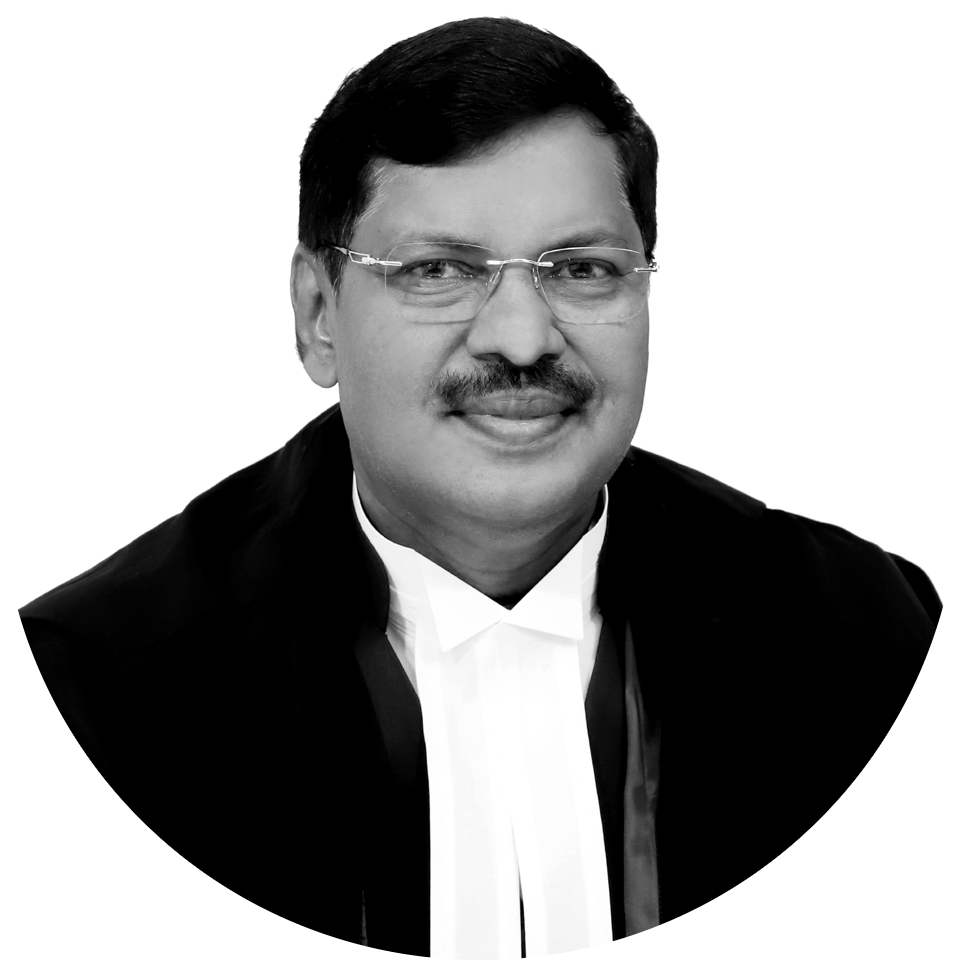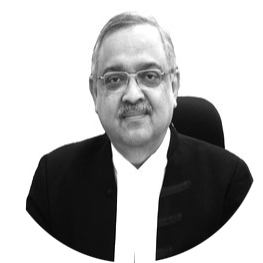Tribunals Reforms Act, 2021
Madras Bar Association v Union of India
Citation: 2025 INSC 1330
The Court struck down provisions of the Tribunals Reforms Act, 2021 on the ground that Parliament had reintroduced provisions that were previously declared unconstitutional by the Court.
Decided
Parties
Petitioner: Madras Bar Association; Jairam Ramesh; Amit Sahni; Delhi Bar Association
Lawyers: Abhishek Manu Singhvi; Vikas Singh
Respondent: Union of India
Lawyers: Tushar Mehta
Case Details
Case Number: WP (C) 1018/2021
Next Hearing: November 7, 2023
Last Updated: November 19, 2025
TAGS: Article 50, Review, Tribunals
Key Issues
Is the Tribunals Reforms Act, 2021 unconstitutional for re-enacting provisions previously struck down by this Court?
Do the provisions pertaining to eligibility, selection, removal and tenure violate principles of separation of powers and independence of judiciary?
Case Description
In July 2021, a three-judge Bench in Madras Bar Association v Union of India (2021) struck down parts of the Tribunals Reforms (Rationalisation and Conditions of Service) Ordinance, 2021. In a 2:1 split, with Justices L. N. Rao and S.R. Bhatt in majority and Justice Hemant Gupta in dissent, the Court held that the provisions enable executive interference in the functioning of tribunals.
The Ordinance inserted several provisions into the Finance Act, 2017 regarding service conditions for tribunal members. Some of these provisions have a long history of being struck down by the Courts and reintroduced by Parliament. This history dates back to Union of India v R. Gandhi (2010), popularly known as the first Madras Bar case.
Background to the contested provisions
Eligibility for appointment of Chairpersons and members of tribunals
The Court had recognised that there should be parity between tribunal members and High Court judges in R. Gandhi (2010), Madras Bar Association (2014) and Rojer Mathew (2019). As per Article 217, advocates require 10 years of experience to be eligible for appointment to the High Court as a judge. This was accordingly adopted as a standard for tribunal members as well.
The Tribunal, Appellate Tribunal and other Authorities (Qualifications, Experience and other Conditions of Service of Members) Rules, 2020 raised the experience criteria to 25 years for advocates. This was subsequently struck down in Madras Bar Association (2020). The 2021 Ordinance then introduced an age requirement of 50 years which was struck down in Madras Bar Association (2021).
The same requirement was reintroduced in the 2021 Reforms and has been challenged by petitioners for being in contravention of the Court’s position since 2010.
Process of selection and appointment
The petitioners have also raised challenges against the Union’s involvement in the appointment of tribunal members and the composition of the Search-cum-Selection Committee in charge of overseeing the appointment process. According to the Act, the SCSC consists of two judicial members and three executive members, with the Chairperson (the Chief Justice of India or a SC judge nominated by them) having a casting vote and the Member-Secretary (Secretary to the Government of India in the Ministry or Department under which the Tribunal is constituted) denied a vote. These provisions also have a long history:
In R. Gandhi (2010) and Madras Bar (2014) the Court held that Secretaries of the concerned tribunal’s parent department cannot be members of the SCSC i.e. they cannot have a say in the appointment of tribunal members. The Tribunal, Appellate Tribunal and other Authorities (Qualifications, Experience and other Conditions of Service of Members) Rules, 2017 reintroduced the provisions, which were then struck down in Rojer Mathew (2019). The 2020 Rules brought it back and were struck down once again in Madras Bar (2020). This time, the Court held that secretaries of the sponsoring department can be members of the SCSC but cannot have a vote. It further directed that the Chairperson (a judicial member) be given the casting vote.
These amendments have been implemented in the 2021 Reforms. However, the petitioners contend that judicial members are still in the minority, therefore, the casting vote might have little effect.
As per early proposals, the SCSC was to recommend a single name per post at the concerned tribunal and the executive was bound to appoint the candidate subject to an Intelligence Bureau (IB) inquiry. If the candidate was flagged by the IB, a second candidate was to be appointed from the wait list of SCSC recommendations. When the 2020 Rules amended this to provide that the SCSC recommend two or three names per post, a tussle ensued:
2020 Rules: SCSC to recommend two-three names per post
↓
Madras Bar (2020): SCSC can recommend only one name per post
↓
2021 Ordinance: SCSC to recommend two names per post
↓
Madras Bar (2021): SCSC can recommend only one name per post
↓
2021 Act: SCSC to recommend two names per post
Notably, the time limit for the executive to confirm appointments is also under challenge. The 2021 Ordinance had used the phrase “preferrably three months” which does not signal a binding mandate. The Court in Madras Bar (2021) had directed that the time limit should be binding and compulsory. The 2021 Reforms have reintroduced the provision without any changes. The petitioners have argued that this increases executive discretion and violates the Court’s directions.
Length of tenure and process of reappointment
In 2010, the Court in R. Gandhi held that the three year tenure for tribunal members (as provided in the Companies (Amendment) Act, 2002) was too short and directed that it should be extended to five years, subject to eligibility of the candidate. The Finance Act, 2017 turned five years into a maximum period for tenure, leaving it to the Government to specify tenure. The 2017 Rules reopened the tussle:
2017 Rules: three year tenure
↓
Rojer Mathew (2019): strikes down the three year tenure
↓
2020 Rules: four year tenure
↓
Madras Bar (2020): strikes down four and directs a five year tenure with assured reappointment
↓
2021 Ordinance: four year tenure with eligibility for reappointment
↓
Madras Bar (2021): strikes down four and directs five year tenure with eligibility for reappointment
↓
2021 Act: four year tenure with eligibility for reappointment
Notably, in Madras Bar (2020) the Court had directed for five years with “entitlement” to reappointment, thereby assuring tenure for tribunal members. This phrase was changed to “eligible for reappointment” as per the Union’s request.
One of the key issues under the 2021 challenge is whether the reappointment process involves a fresh selection process or not. This has raised concerns that the sitting members would pass orders favouring the government due to the level of executive discretion in appointments.
On 6 and 15 September 2021, the petition was heard by a three-judge bench comprising the then Chief Justice N.V. Ramana and Justices D.Y. Chandrachud and L.N. Rao. It was heard along with a series of petitions that highlighted the 200 plus vacancies across 15 tribunals.
The Bench criticised the Union for not honouring the orders of the Court. They stated that a judgement could not be overruled by re-enacting the same provisions and observed that the Union’s reluctance to appoint tribunal members has left many tribunals ‘virtually defunct’.
The Bench reportedly clarified that they weren’t seeking a confrontation with the government.
On 6 January 2025, a Division Bench of Justices Surya Kant and N. K. Singh continued hearing the petitions on vacancies. The Bench directed the Union to respond with details regarding vacancies across the country within six weeks. It also suggested setting up a circuit bench of the Armed Forces Tribunal in Chandigarh, apart from the existing regional benches.
Between 16 October and 11 November, a Bench of Chief Justice B.R. Gavai and Justice K.V. Chandran heard final arguments on the validity of the 2021 Act. It heard submissions from Senior Advocate Arvind Datar, appearing on behalf of the main petitioner and from Senior Advocates Porus Kaka, Sidharth Luthra and Gopal Sankaranarayan on behalf of the intervenors. Attorney General R. Venkataramani appeared on the last two days of hearings.


